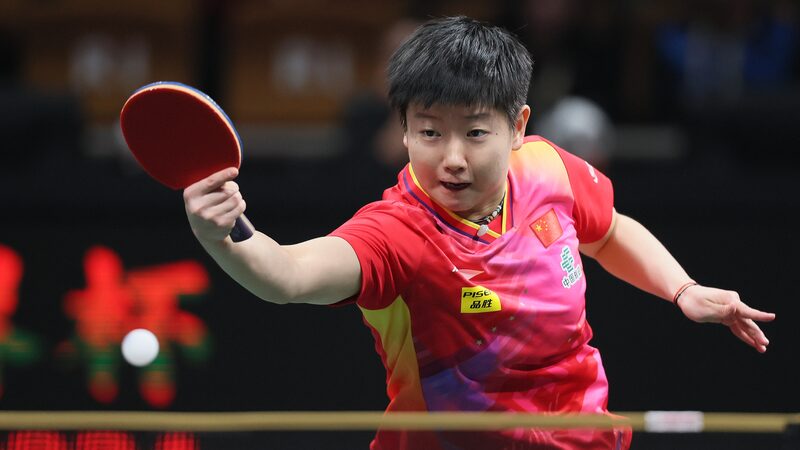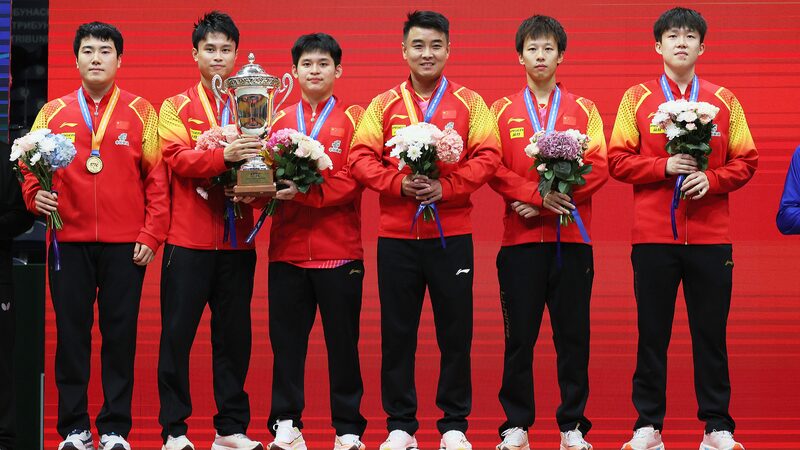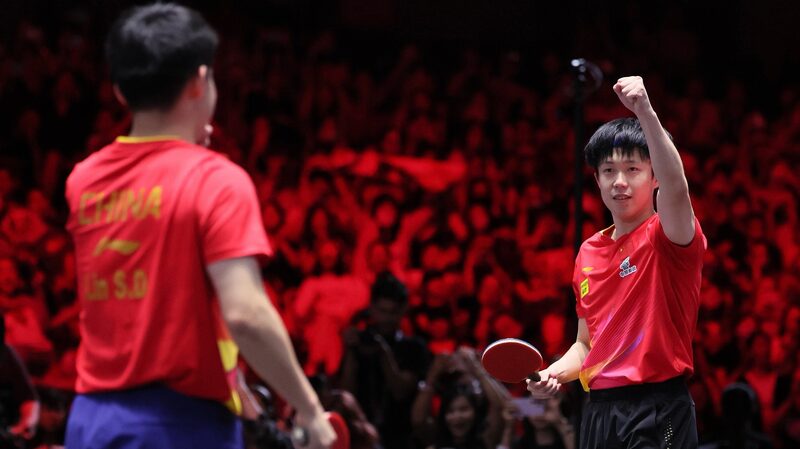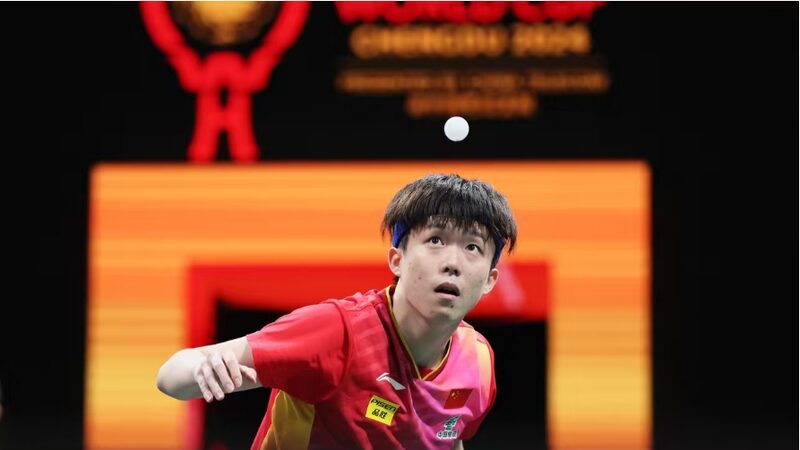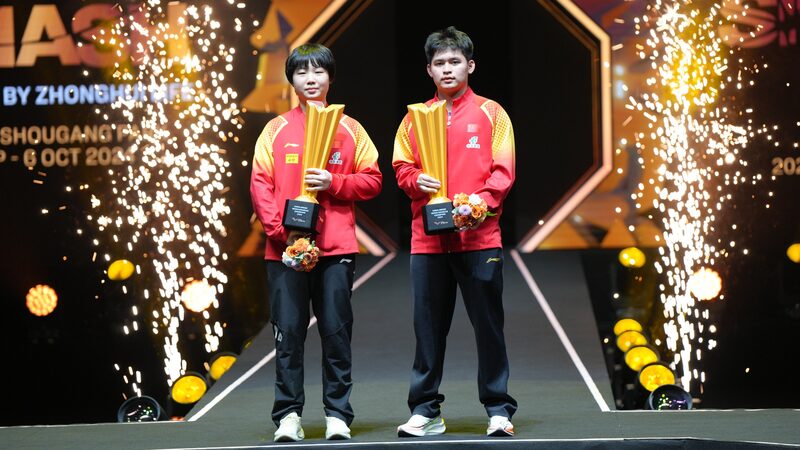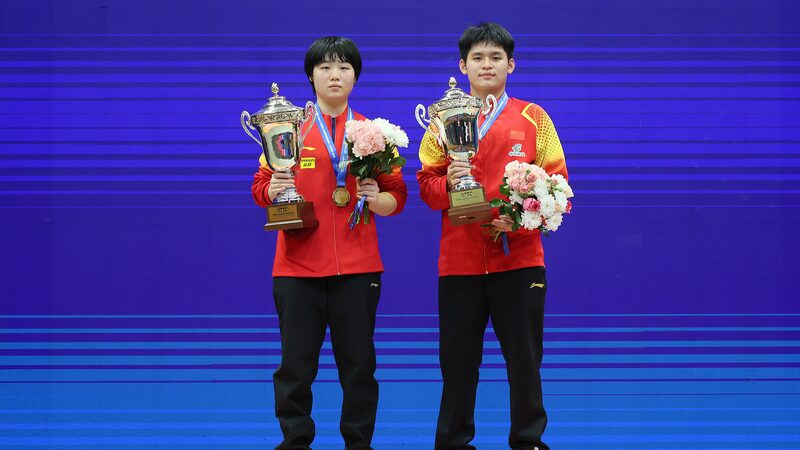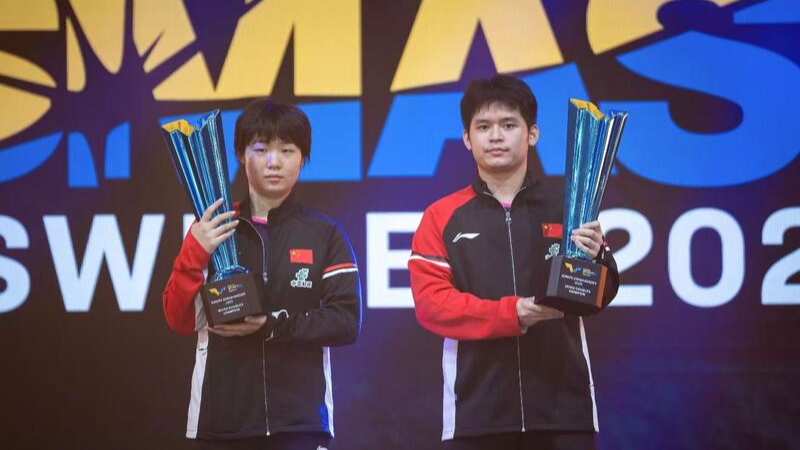Host nation China continued its dominant performance at the ITTF Mixed Team World Cup in Chengdu on Thursday, securing an 8-4 victory over South Korea in the second match of the tournament’s second phase.
The match unfolded with thrilling exchanges, beginning with the mixed doubles where China’s Lin Shidong and Kuai Man overcame an initial setback to defeat South Korea’s Cho Dae-song and Shin Yu-bin. After dropping the first game 10-12, the Chinese pair rallied to win the next two games 11-7, 11-7, taking an early 2-1 lead for the team.
In the ensuing women’s singles, World No. 1 Sun Yingsha faced a tough challenge from Kim Na-yeong. Sun lost the first game narrowly at 10-12 but demonstrated resilience by dominating the next two games 11-2 and 11-7, extending China’s overall lead to 4-2.
The men’s singles saw World No. 1 Wang Chunqin in fine form, edging out Oh Jun-sung in straight games 16-14, 11-8, 13-11. This victory added three crucial points, taking China to a commanding 7-2 lead.
Wang then teamed up with Liang Jingkun in the men’s doubles, facing South Korea’s An Jae-hyun and Cho Dae-seong. Despite losing the first two games 11-8, 11-7, the Chinese duo regained their composure to secure the third game 11-7, clinching the decisive eighth point for the team.
This victory marks China’s second win in the tournament’s second phase, following an 8-1 triumph over Germany on Wednesday. It also signifies the team’s fifth consecutive win in Chengdu, reinforcing China’s status as a powerhouse in international table tennis.
Reference(s):
China beat South Korea for 5th straight win at Mixed Team World Cup
cgtn.com
